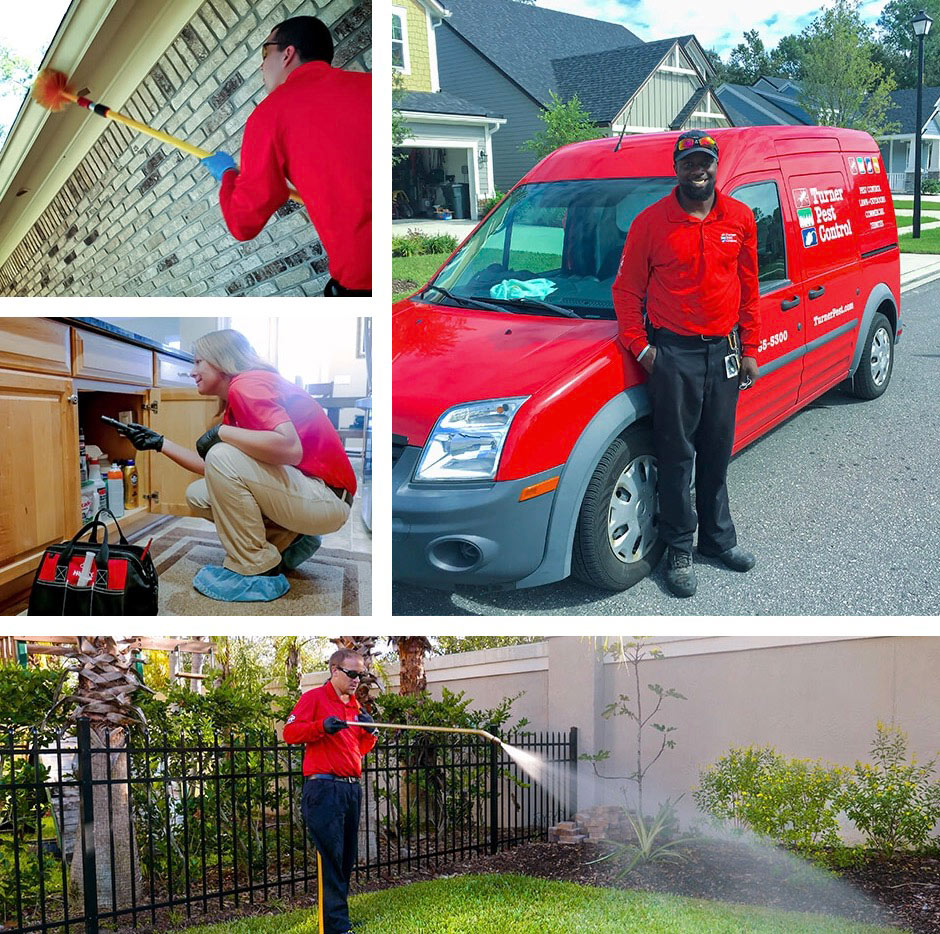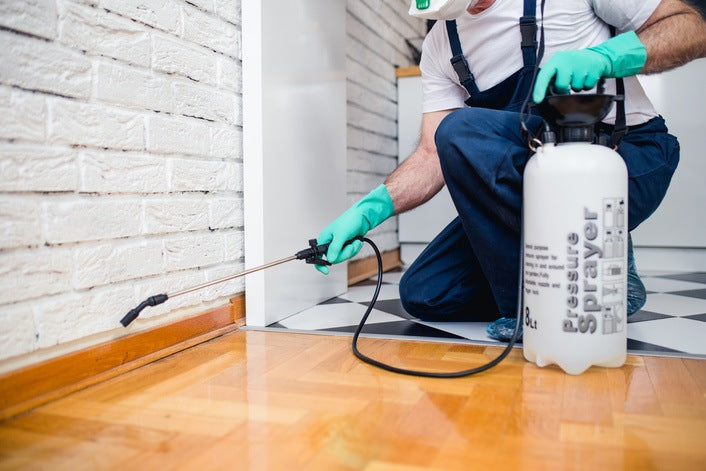Discover the Significance of Pest Control in Keeping a Healthy Environment and Therapy Methods

The Duty of Insects in Ecological Communities
Bugs, usually checked out solely as annoyances, play a multifaceted function in ecosystems that is crucial for maintaining environmental balance. They add considerably to numerous ecological procedures, consisting of pollination, nutrient cycling, and parasite control. As an example, numerous insect varieties, such as butterflies and bees, are crucial pollinators for a vast array of plants, which in turn supports biodiversity and food manufacturing.
In addition, pests serve as victim for countless killers, creating an important web link in food internet. This connection makes certain the survival of different species and aids manage populaces within ecosystems (Termite treatment Port Charlotte). Decomposer insects, such as specific beetles and fungi, are important in breaking down organic issue, therefore enhancing dirt and assisting in nutrition recycling.
On the other hand, while bugs can be beneficial, their overpopulation or intrusion right into non-native settings may interrupt these ecological features. This intricacy emphasizes the value of comprehending bug dynamics, as effective parasite monitoring methods need to think about both their environmental roles and potential influences on human tasks. Balancing pest visibility while decreasing injury is essential for preserving the honesty of ecological communities and making sure agricultural performance.
Health And Wellness Dangers Connected With Bugs
The existence of pests in numerous atmospheres extends past their ecological duties, as they likewise posture substantial health and wellness risks to pets and humans. Several insects, consisting of parasites, bugs, and rats, are carriers of conditions that can have serious wellness implications. Rodents are recognized to transmit hantavirus and leptospirosis, both of which can lead to serious breathing and kidney issues, specifically.
Bugs such as mosquitoes and ticks are infamous for spreading vector-borne conditions like jungle fever, dengue fever, and Lyme illness. These ailments can cause high morbidity and mortality rates, especially in at risk populations. Additionally, bugs like roaches and insects can worsen allergic reactions and bronchial asthma, contributing to respiratory issues in individuals, specifically those with pre-existing problems.
Furthermore, the presence of insects can cause emotional stress and anxiety and pain, influencing general well-being. Contamination of food and surfaces by insect droppings and stays can cause foodborne health problems, highlighting the value of keeping hygienic problems. Understanding the health threats linked with bugs is vital in identifying the requirement of effective pest monitoring approaches to secure human and animal health.

Benefits of Efficient Bug Control
Reliable parasite control is necessary for preserving a secure and healthy and balanced setting, as it continually mitigates the numerous risks related to pest infestations. One of the primary benefits of effective pest monitoring is the decrease of carcinogen. Parasites such as rodents, mosquitoes, and roaches are vectors for conditions that can impact both people and animals. By controlling these populaces, the chance of illness transmission is substantially reduced.
In addition, efficient bug control safeguards home and structures from damages. Several insects, like termites and carpenter ants, can create comprehensive structural damages that may need costly repairs. By proactively managing these organizations, property owners and problems can protect their investments.
An additional significant benefit is the renovation of overall lifestyle. A pest-free setting adds to mental wellness and lowers stress connected with infestations. Moreover, reliable pest control fosters a much safer atmosphere for kids and pet dogs, guaranteeing that homes continue to be sanctuaries devoid of disease-causing microorganisms and unsafe chemicals.
Common Pest Control Techniques

In the world of bug management, numerous methods are employed to deal with infestations efficiently. These strategies can be generally categorized right into three main techniques: cultural, mechanical, and chemical controls.
Social control involves changing methods to reduce bug establishment, recreation, and survival. This may include plant rotation, appropriate hygiene, and habitat adjustment, which collectively develop an atmosphere much less conducive to pest expansion.
Mechanical control utilizes physical techniques to remove parasites (Termite treatment Port Charlotte). Strategies such as vacuum cleaners, catches, and obstacles are commonly used to directly remove pests from an area. This method is specifically reliable for taking care of rats and pests without using unsafe chemicals
Chemical control entails the application of chemicals to take care of parasites. These materials can be classified into herbicides, fungicides, and pesticides, each targeting certain kinds of insects. It is important to make use of these chemicals carefully, adhering to safety guidelines and laws to decrease prospective damage to non-target species and the environment.
Each parasite control technique has its advantages and constraints, and frequently, an integrated strategy integrating multiple approaches anchor generates the finest cause preserving a pest-free environment.
Lasting Insect Management Practices
Lasting insect monitoring methods encompass an array of techniques designed to minimize ecological effect while effectively managing pest populaces. These practices focus on using eco friendly approaches over chemical pesticides, therefore minimizing the risk of damage to non-target species, consisting of useful pests, wildlife, and human beings.
Integrated Insect Monitoring (IPM) is a foundation of lasting methods, integrating biological, social, mechanical, and chemical techniques to manage bugs. Biological control involves introducing all-natural predators or parasites to suppress parasite populaces. Cultural methods, such as plant rotation and polyculture, interrupt pest life process and improve ecological community durability.
Mechanical approaches, such as obstacles or traps, can efficiently stop parasite access without chemical intervention. Furthermore, keeping healthy and balanced communities with correct soil monitoring, plant wellness, and biodiversity can normally mitigate pest issues.
Education and understanding are crucial parts, encouraging neighborhoods and individuals to acknowledge insect dangers early and carry out safety nets. Termite treatment Port Charlotte. By cultivating an all natural technique that stabilizes bug control with ecological integrity, lasting parasite monitoring techniques not just safeguard crops and structures yet also add to a much healthier setting for future generations
Verdict

Recognizing the health and wellness risks linked with bugs is important in recognizing the need of effective parasite administration strategies to guard human and animal health.
Efficient pest control is crucial for preserving a secure and healthy setting, as a knockout post it regularly minimizes the various threats connected with parasite invasions.Integrated Parasite Administration (IPM) is a keystone of sustainable practices, incorporating biological, social, mechanical, and chemical tactics to handle parasites. By understanding the function of parasites, acknowledging affiliated health risks, and employing varied therapy techniques, a lasting strategy to pest management can be accomplished. Integrated Parasite Management (IPM) highlights a holistic method that mitigates harm to valuable organisms while efficiently managing More Bonuses bug populaces.